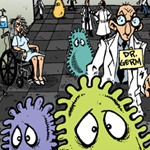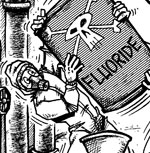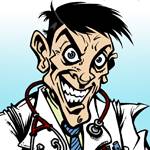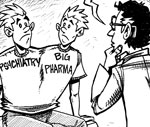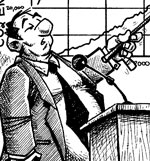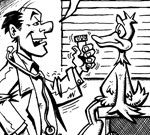Serotonin and Migraines - Non-Drug Methods of Preventing a "Serotonin" Headache
| Share on Facebook | Share on Twitter | Share on Google+ |
Migraine headaches are among the most mysterious of all neurological events. They may cause days of excruciating pain, minutes of minor pain, or no pain at all. They may strike some people at the happiest moments of their lives, and other people at the most depressed moments of their lives. They can be preceded by changes in vision, hearing, smell, taste, or very particular brain functions.
The neurologist Oliver Sacks, one of the world's leading authorities on migraine, has migraine headaches himself. He describes on migraine that was heralded by a phenomenon he terms "amusia."

This does not mean that he was amused and giggly right before his headache started, but rather that he could not hear music, only noise, as he was sitting at his piano, playing a Chopin etude. Dr. Sacks was able to understand speech and to interpret other sounds, but just before his headache started, he suddenly (and temporarily) lost his ability to hear music as music.
The neurotransmitter serotonin plays a key role in migraine. The usual sequence of events that lead to a migraine headache run something like this:
- The person who is about to come down with a migraine experiences a stressful event. This can be emotional stress, lack of sleep, or a trigger. There are probably as many different triggers for migraine headaches as there are people who have migraine headaches, but common triggers include changes in work schedule, loss of sleep, exercise, sexual intercourse, noxious fumes, cigarette smoke, changes in weather, and changes in hormone levels.
- The brain responds by using large amounts of serotonin, over a few minutes, a few hours, or a few days.
- Serotonin causes blood vessels to constrict, but a shortage of serotonin causes blood vessels to dilate. The massive depletion of serotonin causes blood vessels leading to the brain to dilate, expanding, loosening, and leaking plasma into surrounding tissues.
- When the tissues surrounding the dilated blood vessels fill with fluid, they compress nerve fibers, which release a compound known as substance P. Substance P creates a sensation of intense pain.
Serotonin and migraine treatment. Your doctor probably can give you a medication that is at least partially successful at helping the neurons of your brain conserve serotonin so that migraine headaches are less likely. Many of the treatments for migraine are also treatments for depression. ( You might also be interested in herbal cure for depression).
Medications for migraine, unfortunately, all have side effects. It can be very helpful to manage your migraines to minimize your need for medication. Here are some suggestions:
- Avoid foods that contain large amounts of the amino acid tyramine, such as hard cheeses, smoked fish, chocolate, salami and other fermented meats, anchovies, Worcestershire sauce (which is made with anchovies), fava beans, pickled herring, and red wine. The tyramine in these foods blocks the transport of tryptophan into the brain, which the brain uses to make serotonin.
- Consider taking aspirin. It's probably true that most of the time "An aspirin a day keeps the migraines away," but when you stop taking aspirin, you may get an exceptionally severe migraine. Consider taking an herb with aspirin-like natural compounds, such as feverfew, but be sure you only use freeze-dried feverfew. Other preparations of the herb can cause stomach upset.
- Women who get premenstrual migraines often benefit from taking 600 mg of magnesium a day. Take magnesium in three, separate 200-mg doses to avoid stomach upset.
- Consider taking complete B vitamins. Riboflavin deficiency is rare, but it can contribute to the number and severity of attacks.
- 5-HTP is helpful if you are not taking prescription medication for migraines, but it should not be combined with any medication that works by inhibiting reuptake of serotonin.
Not everyone who has migraines gets a sick headache. If you have occasional "brain fog," changes in mood that don't make sense to you, or changes in hearing, sight, smell, taste, or perception, consider taking these five supplements as a way reducing a typical migraines and feeling better.
-
Skin CareMen Skin Care
-
Free ResourcesFree eBooks
-
Half of the modern drugs could well be thrown out of the window, except that the birds might eat them.Dr. Martin Henry Fischer
-
Featured Health Supplement"...I also suffer from mild-to-moderate depression, so several months ago as an experiment I ordered a few bottles of the Neuro-Natural Serenity formula, but never took it consistently. However, I started taking it faithfully last week at full dose and already my spirits are lifting and I have a greater clarity of mind."
Cathi, USA -
